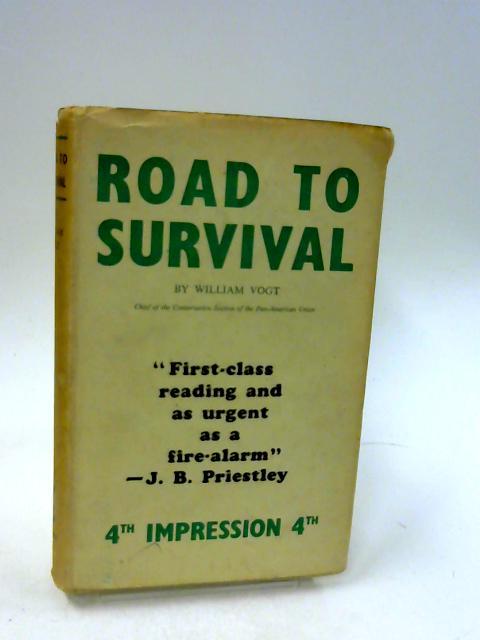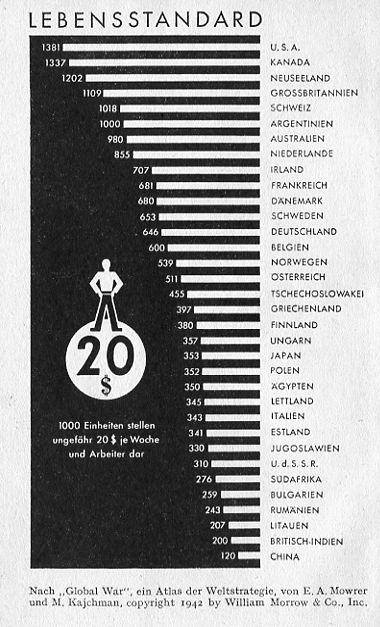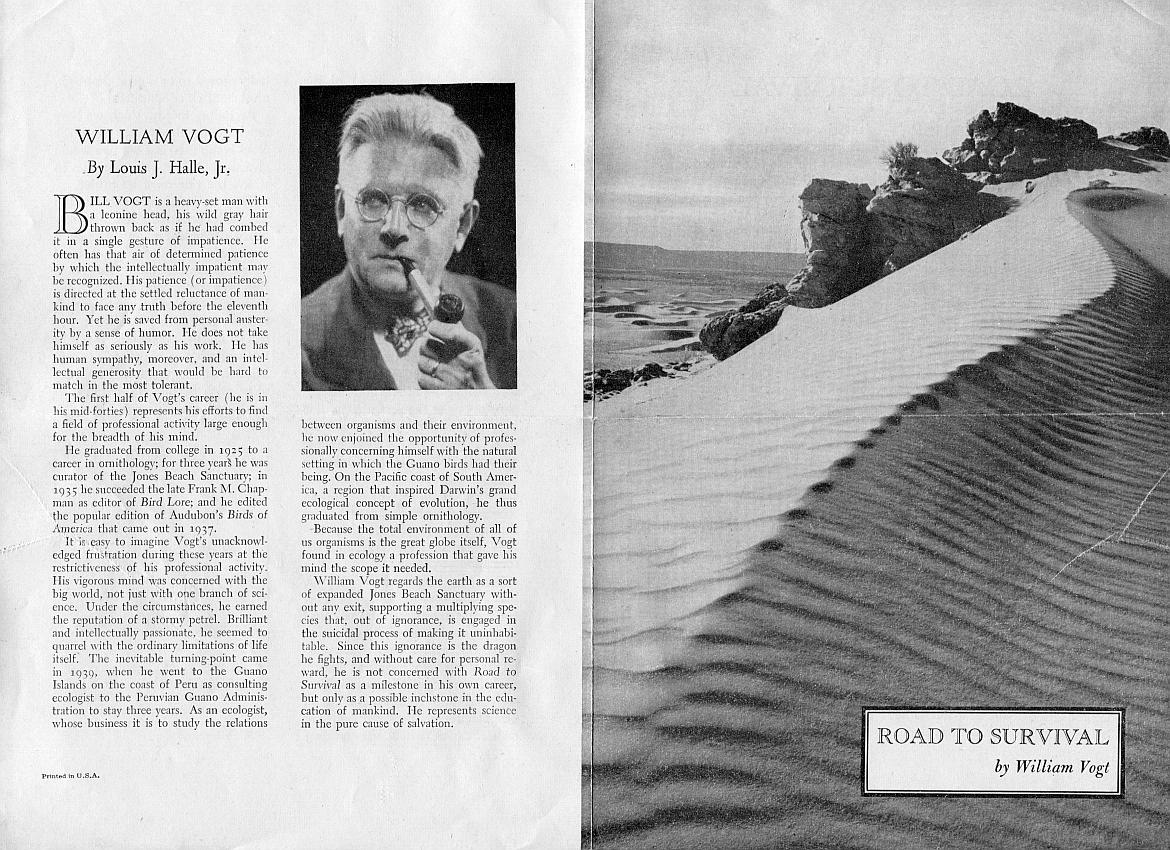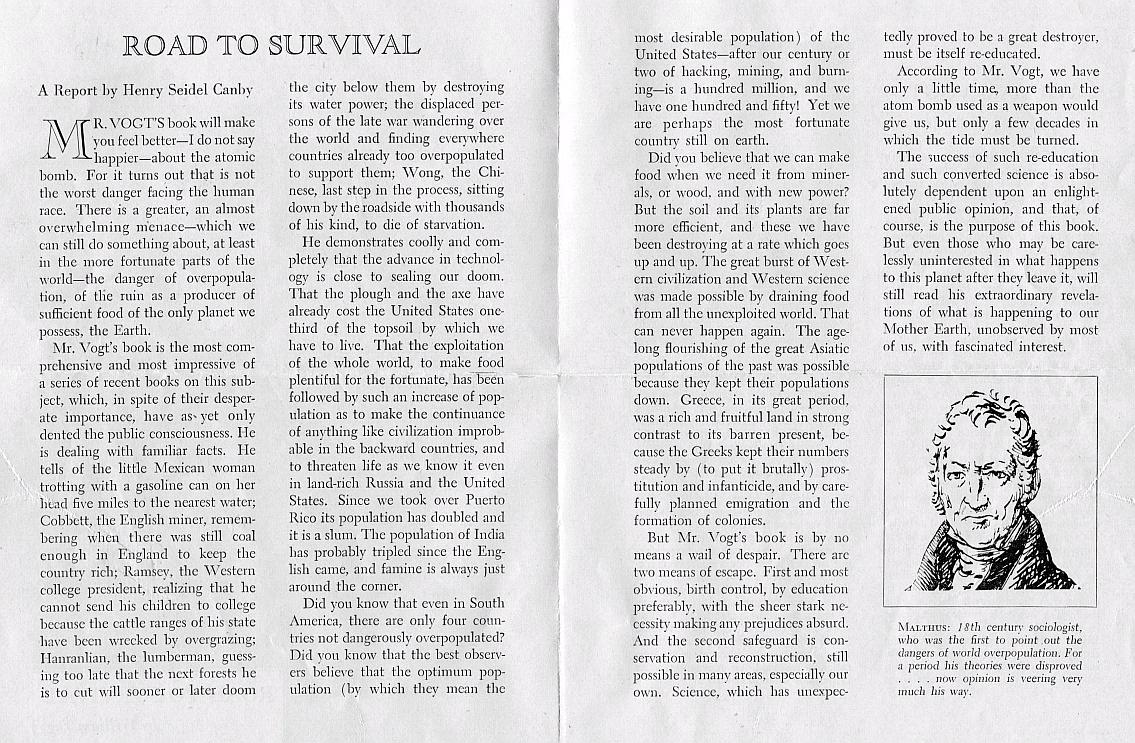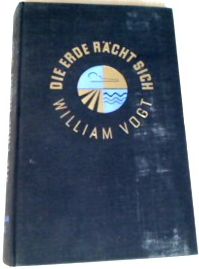 |
William Vogt
Road to Survival - Die Erde rächt sich 1948 im Verlag William Sloane, New York 1950 im Nest-Verlag, Nürnberg |
|
Wikipedia.Autor.en detopia: |
 |
William Vogt
Road to Survival - Die Erde rächt sich 1948 im Verlag William Sloane, New York 1950 im Nest-Verlag, Nürnberg |
|
Wikipedia.Autor.en detopia: |
|
|
detopia: Lesebericht von Prof. Dreyhaupt 2008 Metternich.1947 Osborn.1948 Aldo.Leopold.1949 Demoll.1954 Picht.1969 Leithäuser-1951 Goldsmith.1972 Carson.1962 Forrester.1971 Commoner.1971 Meadows.1972 Buckminster Fuller Vorwort: wikipedia Bernard Baruch (1870-1965, 95) Zum Autor:
National
Director of the Planned
Parenthood Federation of America detopia: Zur Historie der Wahrnehmung: Spiegel 1951 ohne Autor Leithäuser (1951) Eine Replik auf die Kritik der Technik-Pessimisten 1951 Der Monat 1951 Von Joachim G. Leithäuser, Sachbuchautor. Hier polemisiert er gegen "Technikkritiker". Die ZEIT 1953 Von K.Kowalewski Malthus 1999 Von ....
aus en.wikipedia-2011 William Vogt (1902-1968) was an ecologist and ornithologist, with a strong interest in population control. He was the author of best-seller <Road to Survival> (1948), National Director of the Planned Parenthood Federation of America and secretary of the Conservation Foundation. William Vogt was born in Mineola, New York. After graduating with honors in 1925 from St. Stephens (now Bard) College, he was, among other things, an early opponent of marshland drainage for mosquito control and later assumed a series of positions that gave him the opportunity to further pursue his interests in birds and the environment. In 1942, he was made Associate Director of the Division of Science and Education of the Office of the Coordinator in Inter-American Affairs. Later he served as Chief of the Conservation Section of the Pan American Union, he was given the opportunity to study the relationship between climate, population and resources, in various Latin American countries. These experiences formed the background to the perspective he later elaborated on in his <Road to Survival>, a book motivated by his strong belief that then-current trends in fertility and economic growth were rapidly destroying the environment and undermining the quality of life of future generations. Vogt’s most significant contribution was to link environmental and perceived overpopulation problems, warning in no uncertain terms that current trends would deliver future wars, hunger, disease and civilizational collapse. <Road to Survival> was an influential best seller. It had a big impact on a Malthusian revival in the 1950s and 60s. After its publication he dedicated many activities to the cause of overpopulation. From 1951 to 1962, he served as a National Director of the Planned Parenthood Federation of America. In 1964, he became the Secretary of the Conservation Foundation. He served as a representative of the International Union for the Conservation of Nature and Natural Resources to the United Nations until his death. "Upon his death on July 11, 1968, he was remembered for the provocative questions he had dared to ask and for tackling a subjectmatter that remained shrouded in controversy."
Pierre
Desrochers & Christine Hoffbauer (2009) - Universität
Toronto
|
